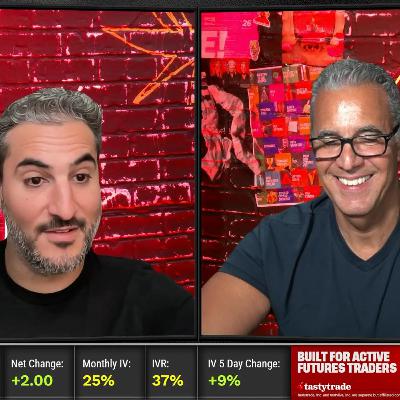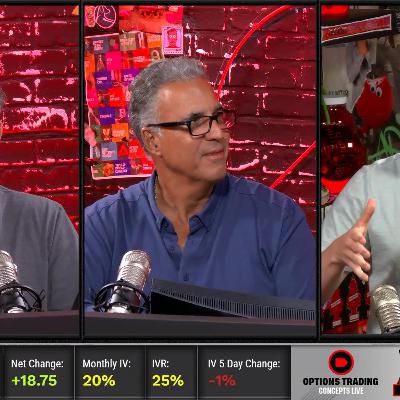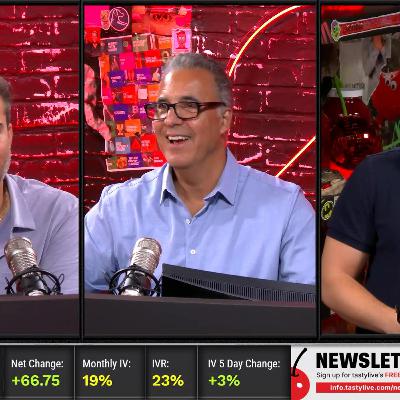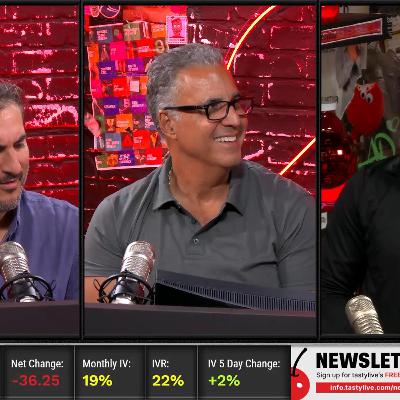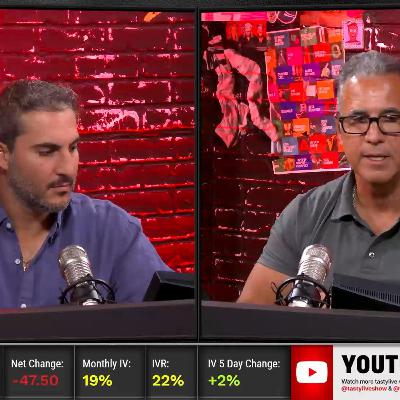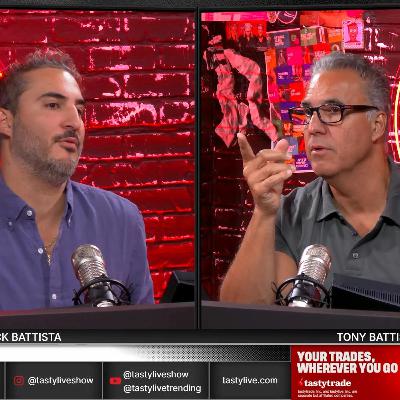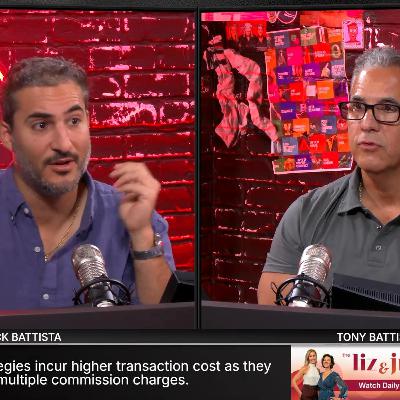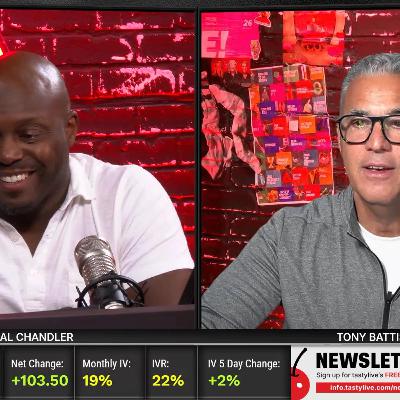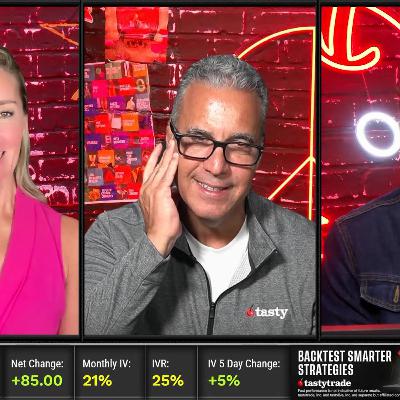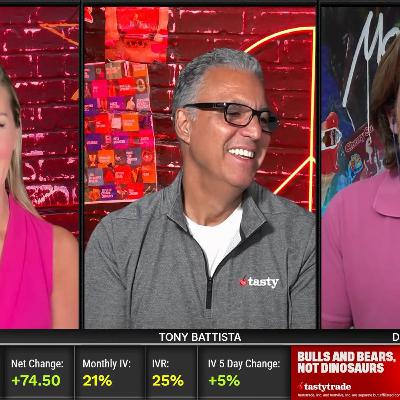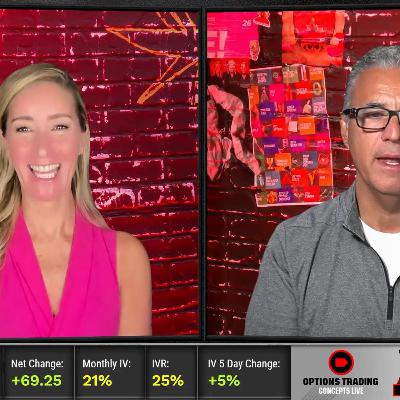Discover tastylive: Live From the Trade Desk
tastylive: Live From the Trade Desk
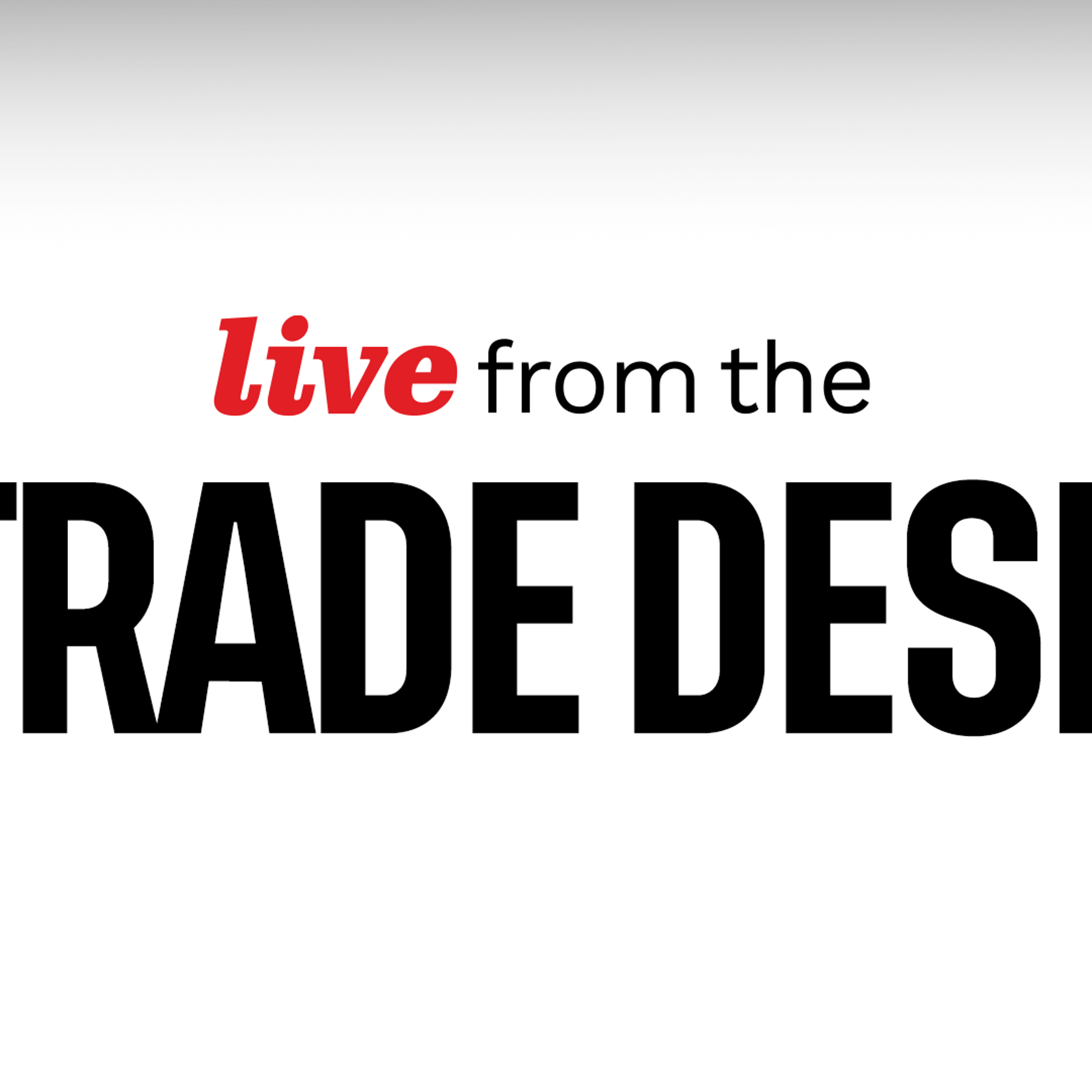
tastylive: Live From the Trade Desk
Author: tastylive
Subscribed: 48Played: 3,343Subscribe
Share
© ℗ & © copyright 2013 - 2025 tastylive. All Rights Reserved.
Description
Nick and Tony are joined by a rotating cast of tastytrade guests to talk about today's market activity and to share the most heavily traded products of the day. Time to trade with a better broker, open a tastytrade account today.
2313 Episodes
Reverse
The market measure segment analyzed stop-loss strategies for spread trades, examining data from SPY options over 10 years. Research showed trades without stop losses had the highest average P&L and win rates compared to various stop-loss thresholds. For traders needing protection, the 50-70% range offered the best balance between risk mitigation and profitability.
Rather than exiting positions completely, selling the untested side during adverse moves can reduce delta exposure by 30-50%, keeping traders in the game while managing risk.
Hosts Nick and Tony discussed the historic precious metals rally while managing through a sharp market sell-off, with Nick closing profitable positions including a NVIDIA put diagonal that went from $7 to $10. The gold segment revealed the accelerating pace of thousand-dollar moves (only 207 days from $3,000 to $4,000 versus years for prior moves), though both hosts admitted hating trading these markets despite increased activity over the past two years. The correlation analysis showed gold and silver move together (0.8 correlation) but have near-zero correlation with S&P 500 on a day-to-day basis, with silver behaving more like a "risk-on" asset due to its industrial demand. Nick capitalized on volatility expansion, taking $60 out of an SPX zero-day spread despite E-minis recovering $10 from entry, demonstrating the power of vol contraction. The session ended with Nick closing profitable TastyFX positions in EUR/JPY and GBP/JPY after taking significant pain, while noting oil's decline to $58 (lowest since April/May) and emphasizing the need to actively trade this volatile environment.
Stock markets melted down amid US-China trade war escalation, then seesawed sharply higher. Is the selloff already over or just starting? tastylive's Head of Global Macro Ilya Spivak breaks down two days of violent price action across global markets and considers what is likely to shape what comes next in the week ahead.
OpenAI continues its strategic expansion through a new partnership with Broadcom (AVGO) to design custom chips, marking another major alliance for the $500 billion company that's influencing tech giants.
Bloom Energy (BE) announced a $5 billion partnership with Brookfield Asset Management for AI infrastructure using their fuel cells, representing nearly 20% of their market cap.
IonQ reported significant advancements in quantum chemistry simulations, contradicting earlier claims that quantum computing applications were years away. The news boosted related stocks including QBTS and QUBT.
Rare earth metal stocks are surging after China announced export restrictions, with companies like MP Materials, LAC, USAR, and TMQ seeing substantial gains as investors target critical materials essential for technology manufacturing.
AI-related investments continue accelerating, with JP Morgan pledging $10 billion toward companies deemed essential to national security.
Dr. Jim managed two struggling positions - closing a HIMS position for a minimal loss and adjusting a GDX position by converting to an inverted strangle. He also opened a new short put on the energy index (XLE) at the $85 strike.
With earnings season approaching, traders should prepare for increased opportunities and potential volatility in individual stocks over the coming weeks.
In a data-rich market measure, analysis shows 2025 correlations between major assets are significantly higher than historic lows across the board. SPY and QQQ have reached "maxed out" correlation levels, suggesting unified market movement despite Friday's volatility.
Gold has returned to its classic hedge profile with near-zero or negative correlation to equities, while small caps closely track major indices, indicating broader risk-on participation. Tech sector cohesion remains strong but less extreme than during pandemic peaks in 2020-2022.
The research suggests traders should be mindful of correlations when constructing portfolios, potentially reducing position sizing during periods of unusually high correlation. Metals continue showing strength with silver up nearly 6%, while tech darlings like NVIDIA, Microsoft, and AI-related stocks post significant gains.
Dr. Jim emphasized the importance of assessing leverage differently for short versus long delta positions. For short delta portfolios, he recommends using a delta-theta ratio of approximately 0.5, adjusting theta levels based on market volatility (0.1-0.2% in low volatility, up to 0.5% in high volatility environments).
For long delta positions, he suggests measuring leverage relative to SPY, calculating beta-weighted delta as a multiple of portfolio size. A 1X leverage means portfolio delta exposure equals the notional value of equivalent SPY shares.
Most traders are likely over-leveraged without realizing it. Dr. Jim recommends beginners start with 1X leverage, with experienced traders typically comfortable in the 2-3X range.



